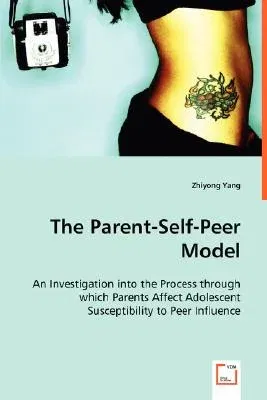Zhiyong Yang
(Author)The Parent-Self-Peer ModelPaperback, 27 May 2008

Qty
1
Turbo
Ships in 2 - 3 days
In Stock
Free Delivery
Cash on Delivery
15 Days
Free Returns
Secure Checkout
Print Length
112 pages
Language
English
Publisher
VDM Verlag Dr. Mueller E.K.
Date Published
27 May 2008
ISBN-10
3639025911
ISBN-13
9783639025910
Description
Product Details
Author:
Book Format:
Paperback
Country of Origin:
US
Date Published:
27 May 2008
Dimensions:
22.86 x
15.24 x
0.58 cm
ISBN-10:
3639025911
ISBN-13:
9783639025910
Language:
English
Location:
Saarbrucken
Pages:
112
Publisher:
Weight:
158.76 gm

